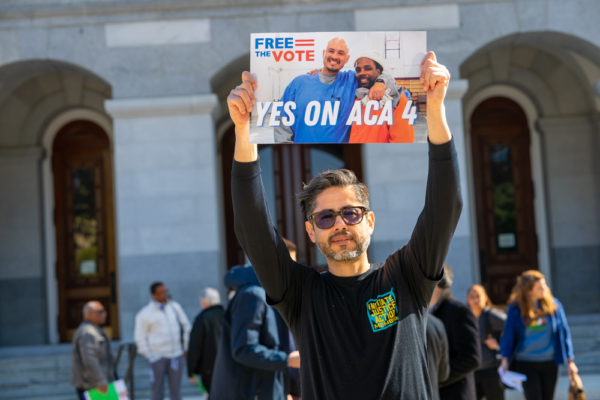ACA4 Would Restore Voting Rights to Incarcerated Californians
Over 120,000 incarcerated Californians are banned from voting in all elections

In light of a newly released report from The Sentencing Project, "Increasing Public Safety by Restoring Voting Rights," the California State Assembly is considering Assembly Constitutional Amendment 4 (ACA4). Authored by Assemblymember Issac Bryan (D-Los Angeles), ACA4 would restore voting rights to Californians while they are serving a prison sentence, finally ending a discriminatory policy that has plagued the state for over a century.
Different than a bill that goes through the legislative process, a constitutional amendment can be initiated by the Legislature if it passes both houses by a two-thirds vote. A constitutional amendment does not need the Governor's signature, but becomes part of the state's constitution only if the electorate approves it at the next general election.
Denying people with criminal convictions the right to vote is a form of racial oppression that dates back to Jim Crow laws. Because of disparities in policing and imprisonment in our criminal legal system, felony disenfranchisement has the same effect today that it was designed to have in the 1800s. Black, Brown, Indigenous, and poor people are disproportionately harmed by these laws, undermining their voices in shaping our society.
California voters should have the opportunity to decide if our Democracy is one that thrives with the participation of everyone. ACA 4 will give the people of California a choice – should we be an inclusive, democratic society, or should we turn back to our own dark history of racially motivated disenfranchisement, voter suppression, and restriction of civil rights and participation.
Restoring the right to vote for people incarcerated in prison will not only make our democracy fairer – it will also make our communities safer. As indicated in the recent report from The Sentencing Projected reference above, studies repeatedly show that when system-impacted people can vote, they are less likely to be reincarcerated after release.
To read more about what you can do to support and advocate for the advancement of ACA4, visit the website for California Free The Vote. You can also download an ACA4 Fact Sheet.










